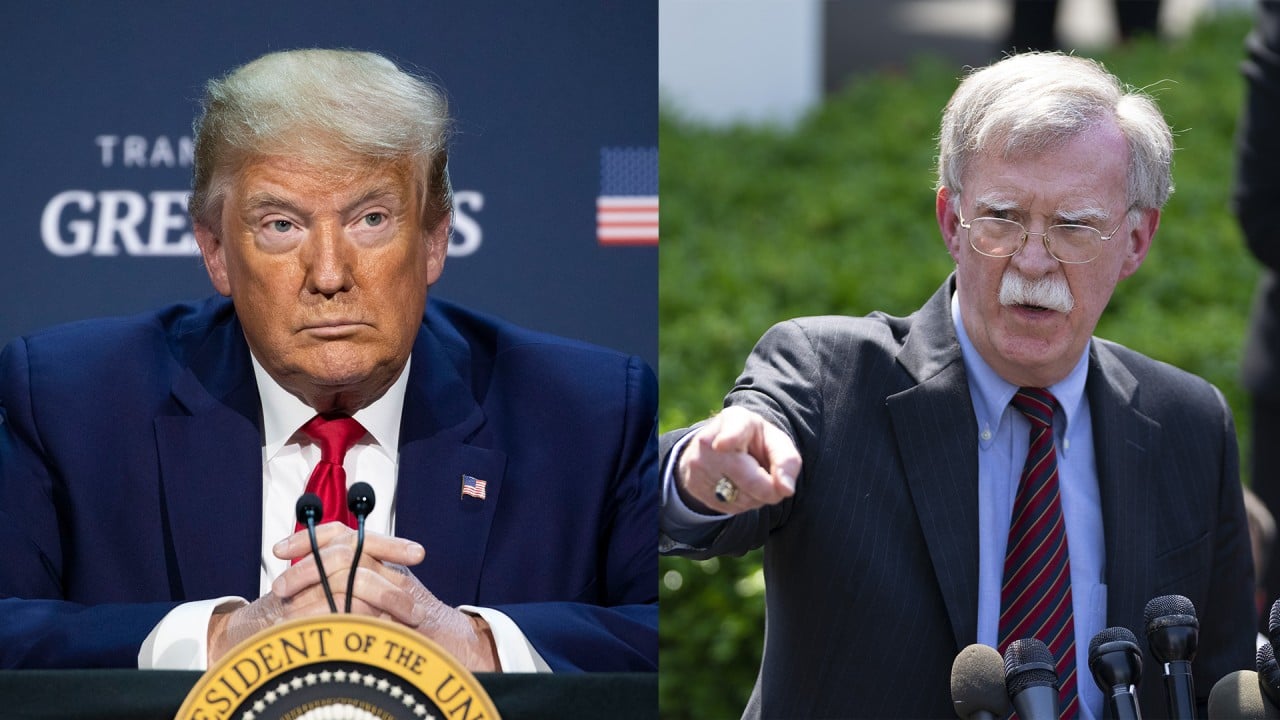
South Korea rubbishes ‘distorted’ John Bolton’s memoir on Trump-Kim summit
- The former national security adviser claimed that President Moon had raised unrealistic expectations with both Kim and Trump for his own ‘unification’ agenda
- His upcoming book also revealed that Washington demanded last year that Japan pay US$8 billion annually as expenses to host American troops
The book, The Room Where It Happened: A White House Memoir, is scheduled for publication on Tuesday but media outlets have released excerpts.
“It does not reflect accurate facts and substantially distorts facts,” South Korea’s national security adviser, Chung Eui-yong, said in a statement referring to Bolton’s description of top-level consultations.
Chung did not elaborate on specific areas South Korea saw as inaccurate but said the publication set a “dangerous precedent”.

01:34
Trump ‘pleaded’ for China to help him get re-elected, writes former US adviser Bolton in new book
“Unilaterally publishing consultations made based on mutual trust violates the basic principles of diplomacy and could severely damage future negotiations,” he said.
Bolton reportedly cites Chung as relaying Moon’s response to the breakdown as, on the one hand, Trump was right to reject Kim’s proposal but on the other, Kim’s willingness to dismantle the Yongbyon facility was a “very meaningful first step” toward “irreversible” denuclearisation.
Moon’s vision of peace with North Korea goes up in smoke
Bolton refers to Moon’s position as “schizophrenic”.
Asked about that reference by Bolton, a top official in Moon’s office told reporters: “Perhaps he is in that condition.”
Bolton said on Sunday he thinks Kim “gets a huge laugh” over Trump’s perception of their relationship.
When ABC News journalist Martha Raddatz asked if Trump “really believes Kim loves him,” Bolton replied he could see no other explanation.
“And yet, the president has looked at them as evidence of this deep friendship,” he said, adding that friendship does not amount to international diplomacy.
Two years after historic summit, what remains of Trump-Kim bromance?
During his trip to Japan in July 2019, Bolton conveyed Trump’s request to a senior Japanese government official. The sum is about quadruple the amount currently shouldered by Japan under the name of host nation support for US troops stationed in the country under the long-standing security alliance.

When media reports emerged previously that Bolton was demanding Tokyo pay more, Japan’s top government spokesman Yoshihide Suga had denied them. In fiscal 2019, Japan allocated 197.4 billion yen (about US$1.8 billion) to host the troops.
Bolton said in the upcoming book that when he returned to Washington and briefed Trump, the president said, while also referring to a demand for US$5 billion in host nation support from South Korea, that “the way to get the US$8 and US$5 billion annual payments, respectively, was to threaten to withdraw all US forces.”
Additional reporting by Agence France-Presse and Kyodo

